WEMOS ESP32 Board with 18650 Battery Holder
Jump to navigation
Jump to search
Overview
This esp32 wifi + bluetooth with 18650 battery sharging system development tool provides a perfect solution for the situation you often encountered: When you do some ESP32 projects you must hate to add a power bank to provide the power.
ESP32 is highly-integrated with in-built antenna switches, RF balun, power amplifier, low-noise receive amplifier, filters, and power management modules. ESP32 adds priceless functionality and versatility to your applications with minimal Printed Circuit Board (PCB) area requirements.
Functionality
- A LG 3000mAH 18650 battery could make ESP32run 17 hours or more.
- 18650 charging system integrated.
- indicate LED inside(Green means full& Red means charging)
- Charging and working could be at the same time.
- with Switch to control power.
- 1 extra LED could be programmed(Connected with GPIO16[D0])
- 0.5A charging current, Max. 1A output
- Over charge protection
- Over discharge protection
- Full ESP32 pins break out
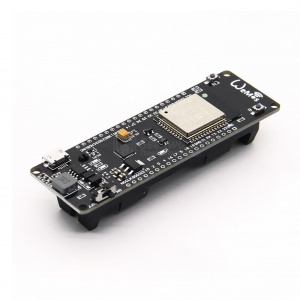
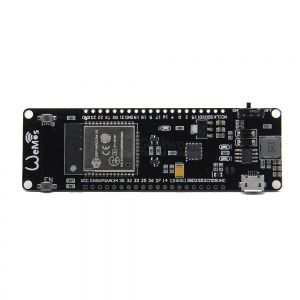
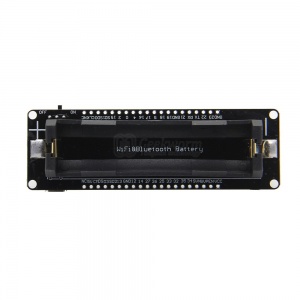
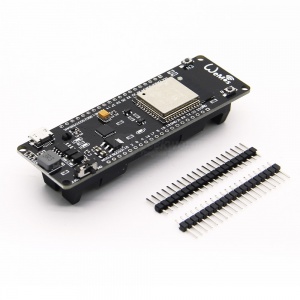
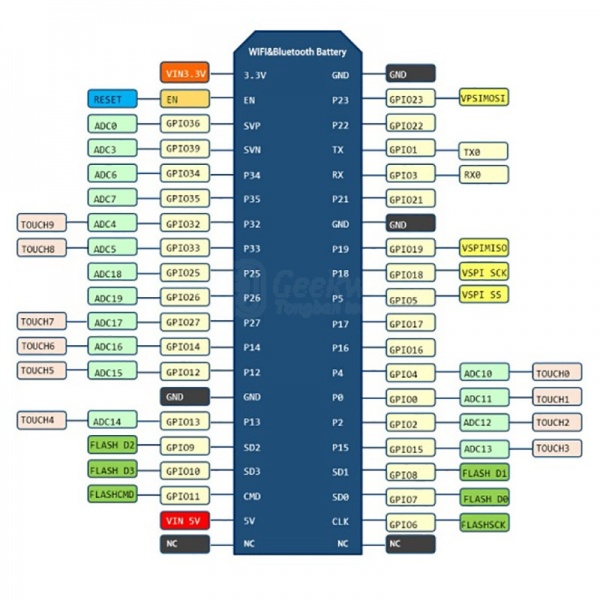
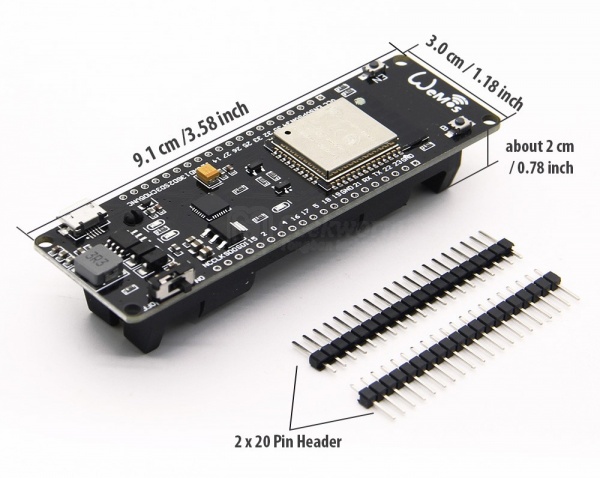
Enable comment auto-refresher
Anonymous user #23
Permalink |
Anonymous user #22
Permalink |
Anonymous user #22
Anonymous user #21
Permalink |
Lisa
Anonymous user #21
Anonymous user #19
Permalink |
Anonymous user #20
Anonymous user #18
Permalink |
Anonymous user #17
Permalink |
Walker
Walker
Anonymous user #17
Walker
Anonymous user #16
Permalink |
Walker
Anonymous user #15
Permalink |
Walker
Anonymous user #14
Permalink |
Walker
Anonymous user #13
Permalink |
Anonymous user #13
Walker
Anonymous user #11
Permalink |
Walker
Anonymous user #9
Permalink |
Anonymous user #10
Anonymous user #12
Anonymous user #8
Permalink |
Anonymous user #6
Permalink |
Anonymous user #7
Anonymous user #4
Permalink |
Anonymous user #5
Anonymous user #3
Permalink |
Anonymous user #1
Permalink |
Anonymous user #2